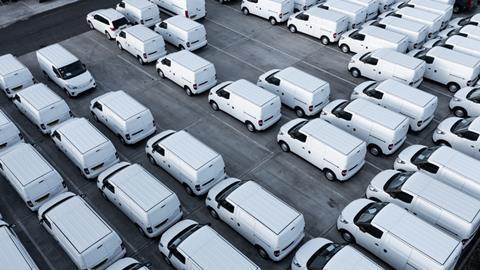The national franchised dealers association (NFDA) has hailed a successful year for light CV sales, but the electric van market share remained unchanged in 2023.
The association’s chief executive Sue Robinson said: “December’s figures end what has been a very successful year for light commercial sales, as often sales and registrations of LCVs fall off in the lead up to Christmas.
“However, it should be noted that the year-to-date market share for battery electric vans has remained at 5.9%, representing no change from the previous year.”
SMMT figures showed CV dealers registered 29,071 new vans and light commercials last month, an increase of 36.1%.
This was the twelfth consecutive month of growth.
For 2023, year-to-date figures showed 341,455 new LCVs are on the road this year, an increase of 21%.
The NFDA said the heavier sectors of LCVs had improved substantially, with 2-2.5-tonne sized vans rising to 4,905 units from 2,436 units, a 101.4% increase.
Heavier vans in the 2.5-3.5-tonne range increased to 18,054 units from 16,377 units, a 10.2% increase.
December’s registration figures revealed an increase in battery electric (BEV) commercials registered, up 73.8% to 2,964 units.
Whilst the volume for EV vans increased to 20,253, it still only represented 5.9% of the total market share.
Robinson added: “This does not appear to be a good omen, especially with the implementation of the ZEV mandate this week, which will require each qualifying brand to meet a target of 10% of van sales being zero-emissions or face penalties.
“In 2024, the government will need to provide more clarity to LCV drivers looking to make the switch to electric.
“The impetus to drive the transition to zero-emissions for LCVs very much depends on the government appreciating that outside the larger cities and towns, buyers of BEV commercials need the reassurance that there will be sufficient charging infrastructure to use EV vans on longer journeys.”
This week, leasing firm Arval said some fleets were switching to electric SUVs as an alternative to diesel and electric vans, due to their benefits for firms wanting to transition.

















